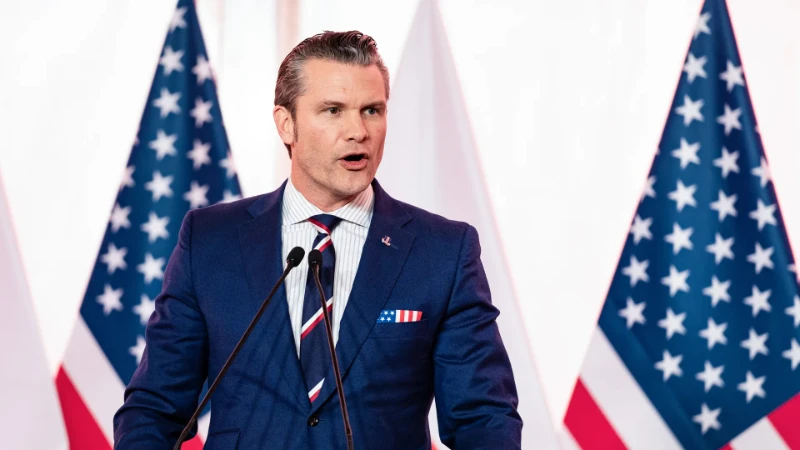Trump and Modi: A Strategic Alliance or a Diplomatic Minefield?
As U.S.-India relations deepen, concerns over immigration policies and geopolitical tensions threaten to overshadow the promise of economic collaboration.
The recent meeting between President Donald Trump and Prime Minister Narendra Modi has been a focal point of international attention, underscoring the significance of U.S.-India relations. This high-profile engagement at the White House marks a critical juncture for both nations as they navigate complex geopolitical landscapes. The visit is not just symbolic; it represents a strategic alliance that could redefine regional power dynamics.
The bilateral relationship between the United States and India holds immense strategic importance for both countries. Recent developments, including defense cooperation agreements and economic partnerships, have paved the way for this pivotal meeting. As noted by William F. Wechsler from the Atlantic Council,
"Modi’s presence in these busy opening weeks reflects the administration’s appreciation of the strategic importance of the bilateral relationship to US global interests" - William F. Wechsler
President Trump's populist approach resonates with Prime Minister Modi's political style, creating a personal rapport that strengthens their diplomatic ties. Both leaders share similar ideologies that appeal to their respective domestic audiences, enhancing their mutual understanding and collaboration on various fronts.
However, Trump's negotiation tactics have raised eyebrows globally. His threats concerning tariffs and immigration policies affecting Indian nationals in the U.S., such as potential changes to H-1B visas, have sparked concern among stakeholders who fear negative repercussions on bilateral ties.
A significant topic during this meeting was the introduction of the India-Middle East-Europe Economic Corridor (IMEC), envisioned as a transformative project capable of reshaping trade dynamics across regions. Launched during the G20 summit in New Delhi, IMEC aims to create an extensive network linking key economic zones through railways and maritime routes.
Despite its ambitious goals, progress on IMEC has stalled due to geopolitical tensions involving Israel's conflicts with Hamas and Hezbollah. Arab governments' reluctance to strengthen economic ties with Israel amidst ongoing conflicts further complicates support for IMEC development.
Concerns from Arab nations about establishing dependencies with Israel highlight potential risks associated with IMEC's implementation. These apprehensions underscore fears that unresolved regional disputes could undermine efforts to foster economic integration across Middle Eastern countries.
If revitalized under Trump's leadership, IMEC could attract substantial investments in infrastructure projects throughout several Middle Eastern nations - potentially reducing reliance on traditional trade routes while countering China's Belt and Road Initiative.
The competition for contracts related to the India-Middle East-Europe Economic Corridor (IMEC) has intensified, with European and Indian companies vying for a piece of the lucrative pie. The Adani Group, with its significant stake in Israel's Haifa Port Company, is well-positioned to capitalize on this opportunity. However, concerns have been raised about potential monopolistic practices and the exclusion of smaller players from these projects.
Experts warn that such competition could lead to geopolitical tensions if not managed carefully. "The IMEC presents both opportunities and challenges," said Dr. Anjali Sharma, a geopolitical analyst. "While it promises economic growth and integration, it also risks exacerbating regional rivalries if not handled diplomatically."
"The IMEC presents both opportunities and challenges," said Dr. Anjali Sharma.
President Trump is expected to propose strategies during his meeting with Prime Minister Modi to revitalize U.S. involvement in the IMEC project. One potential strategy includes appointing an envoy specifically tasked with overseeing U.S. interests in the corridor's development. This move aims to ensure that American companies are not sidelined by their European or Indian counterparts.
However, Trump's proposed immigration policies have cast a shadow over U.S.-India relations, particularly concerning H-1B visas and deportations of undocumented Indians in the United States. These policies threaten to strain diplomatic ties between the two nations at a time when cooperation is crucial.
Reactions from various stakeholders within India highlight growing unease over these immigration policies' implications for bilateral ties moving forward. Critics argue that increased deportations could lead to public backlash against Modi's government if perceived as capitulating too readily to U.S demands.
"Deportations have already begun on a relatively small scale," noted journalist Rakesh Patel, "but they are likely to create increasing controversy as numbers rise."
Despite these concerns, some support Trump's initiatives as necessary steps towards strengthening economic ties while addressing security concerns in Asia-Pacific regions.
"Trump's focus on security aligns with our national interests," commented defense analyst Major General Vikram Singh (Retd).
As discussions continue between President Trump and Prime Minister Modi, there remains hope for finding common ground that benefits both nations without compromising their respective strategic goals.
